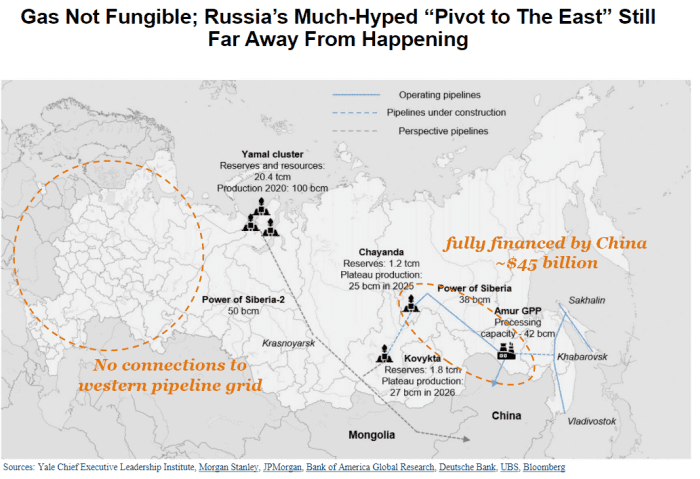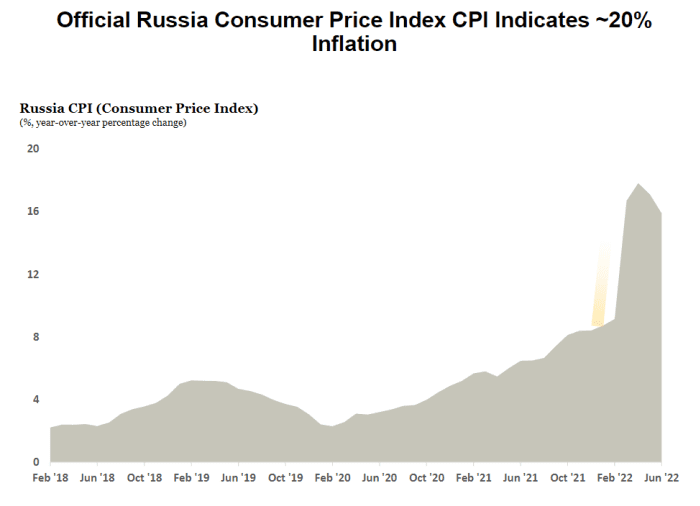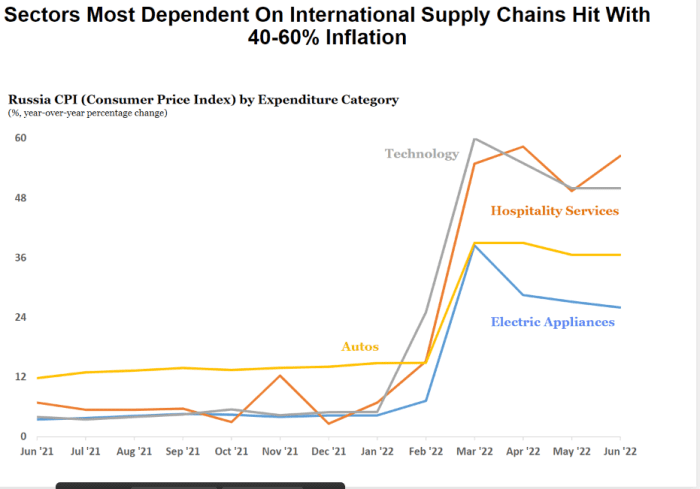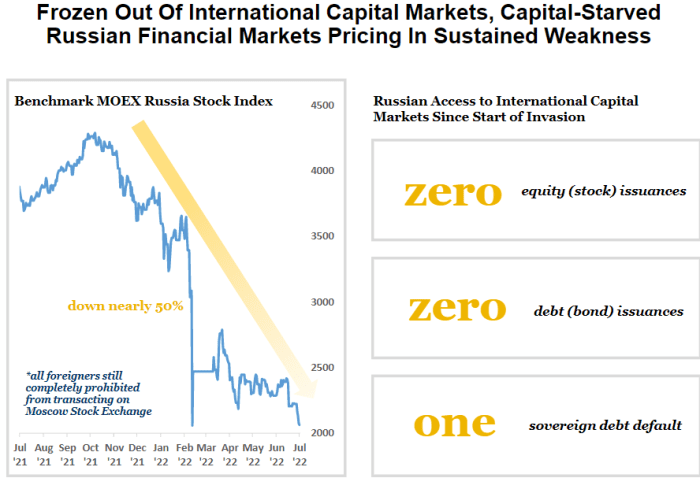
Media reports trumpeting the resilience of the Russian economy in the face of the international response to its invasion of neighboring Ukraine are based on misunderstandings that don’t reflect what’s happening on the ground, according to a new paper from the Yale School of Management.
The report, called “Business retreats and sanctions are crippling the Russian economy,” found that far from the “prosperity” touted by the Kremlin and Russian President Vladimir Putin, the sanctions — and the exodus of more than 1,000 global companies –are having a catastrophic effect.
The report drew on private Russian language and unconventional data sources including high frequency consumer data, cross-channel checks, releases from Russia’s international trade partners, and data mining of complex shipping data, according to the authors, led by Professor Jeffery Sonnenfeld, senior associate dean for leadership studies at the Yale School of Management.
“From our analysis, it becomes clear: business retreats and sanctions are catastrophically crippling the Russian economy. We tackle a wide range of common misperceptions – and shed light on what is actually going on inside Russia,” said the report.
See Now: Despite plenty of talk, many U.S. companies have still not fully exited Russia: Moral Rating Agency
Related: Kremlin could seize Russian assets of U.S. companies, warns Moral Rating Agency
(For a quick summary of the report, check out this TikTok video by Canadian Steve Boots, who offers political commentary on social media.)
The Yale team has been tracking the companies that have exited Russia since the start of the war — and those that have not — and has found that the leavers are being rewarded by the stock market, while remainers are being punished.
See now: Companies that exited Russia after its invasion of Ukraine are being rewarded with outsize stock-market returns, Yale study finds — and those that stayed are not
Among the report’s key findings are:
• Russia’s position as a commodities exporter “has irrevocably deteriorated,” as it has lost access to its former main markets and is facing challenges in pivoting to Asia with non-fungible exports such as piped gas.
Source: Yale School of Management Report
• Russian imports have also mostly collapsed and it’s struggling to secure crucial inputs, parts and technology from hesitant trade partners, creating serious supply shortages.
• While Putin boasts of the country’s self-sufficiency, domestic production has come to a standstill with no capacity to replace lost business, products and talent. At the same time, Russia is facing the same soaring prices and consumer angst as seen in most of the world.

Source: Yale School of Management
• The inflation picture for sectors that depend on international supply chains is even more grim at 40% to 60% and that’s impacting a swath of key industries. The report describes how some Russian manufacturers are resorting to cannibalizing and recycling parts, and cites U.S. Commerce Secretary Gina Raimondo as saying Ukrainians are finding Russian military equipment filled with semiconductors that have been removed from dishwashers and fridges.

Source: Yale School of Management
• The retreat of so many businesses has cost the country about 40% of its GDP, reversing nearly three decades of foreign investment.
“Putin is resorting to patently unsustainable, dramatic fiscal and monetary intervention to smooth over these structural economic weaknesses, which has already sent his government budget into deficit for the first time in years and drained his foreign reserves even with high energy prices – and Kremlin finances are in much, much more dire straits than conventionally understood,” the authors wrote.
• Russia’s domestic financial markets are the worst performing in the whole world this year and that’s despite strict capital controls. At the same time, it’s cut off from accessing global capital markets to revitalize its economy.

Source: Yale School of Management
“Looking ahead, there is no path out of economic oblivion for Russia as long as the allied countries remain unified in maintaining and increasing sanctions pressure against Russia, and The Kyiv School of Economics and McFaul-Yermak Working Group have led the way in proposing additional sanctions measures,” said the report.
“Defeatist headlines arguing that Russia’s economy has bounced back are simply not factual – the facts are that, by any metric and on any level, the Russian economy is reeling, and now is not the time to step on the brakes,” it concluded.
Background: Yale professor monitoring companies still doing business in Russia ups the ante by highlighting those that are now ‘digging in’
For the full list of companies: Visit the Yale School of Management website


